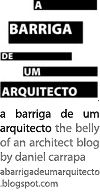Carrilho da Graça receives Prémio Pessoa (Prize)
Published Thursday, December 18, 2008.
Prémio Pessoa is one of the most prestigious awards delivered in Portugal, being attributed yearly to a “Portuguese personality that has distinguished him or herself in the artistic, literary or scientific fields”. This year, the jury has honored the architect João Luís Carrilho da Graça for his work of great clarity and coherence and his contributions to the formation of young architects. This prize is named after the famous Portuguese poet Fernando Pessoa.

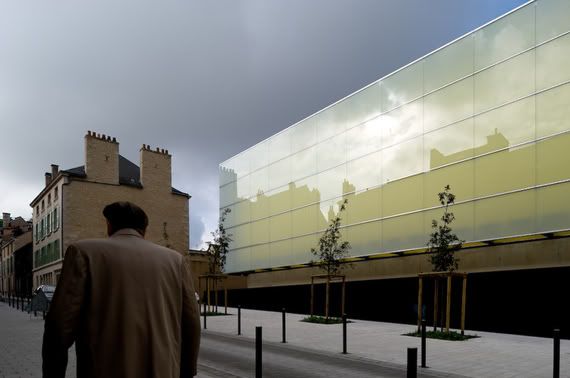
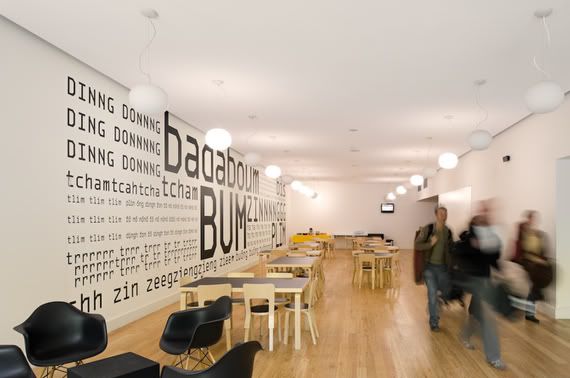
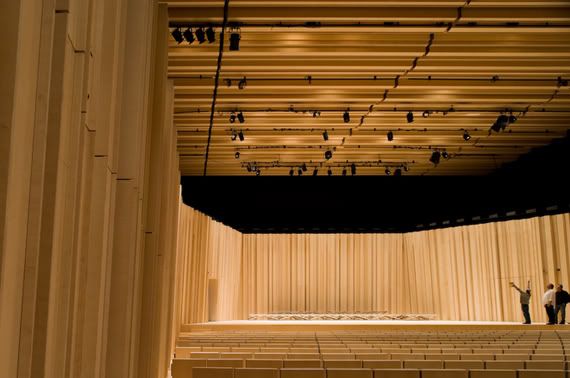
João Luís Carrilho da Graça: Théâtre & Auditorium, Poitiers. Image credits: Fernando Guerra.


João Luís Carrilho da Graça: Oriente Museum, Lisbon. Image credits: Fernando Guerra.
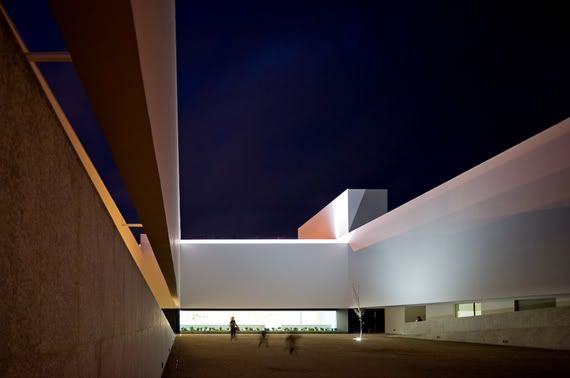
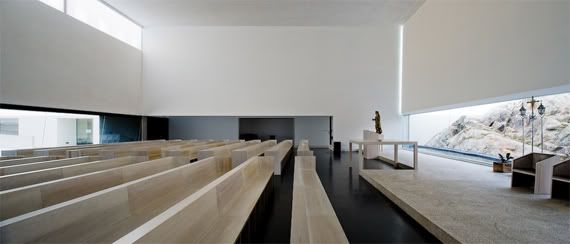
João Luís Carrilho da Graça: Church in Portalegre. Image credits: Fernando Guerra.
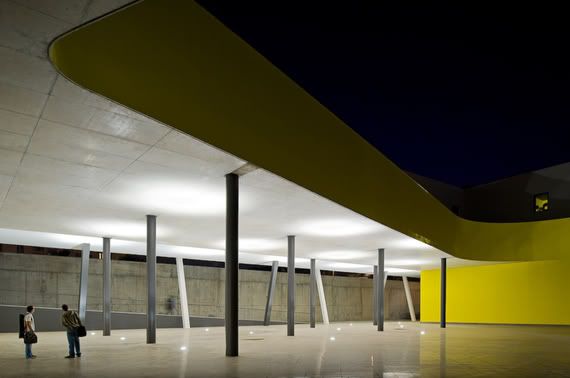
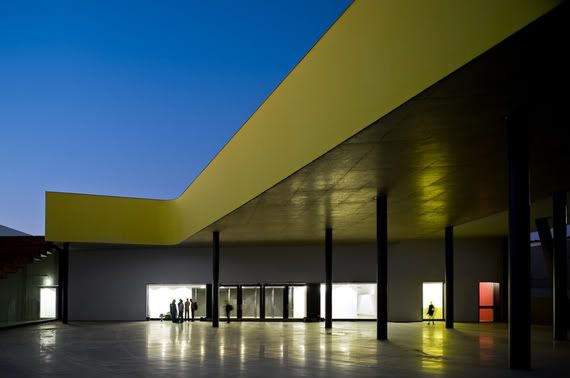
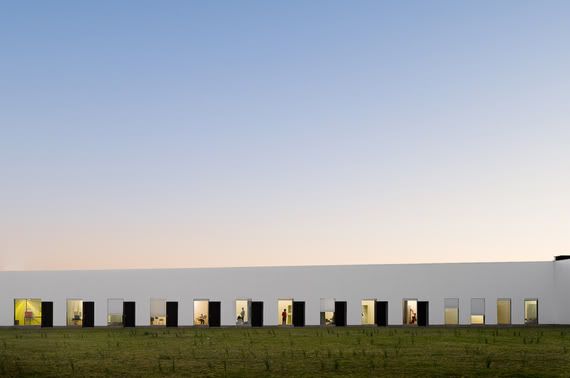

João Luís Carrilho da Graça: School of Music, Lisbon. Image credits: Fernando Guerra.




João Luís Carrilho da Graça: Théâtre & Auditorium, Poitiers. Image credits: Fernando Guerra.


João Luís Carrilho da Graça: Oriente Museum, Lisbon. Image credits: Fernando Guerra.


João Luís Carrilho da Graça: Church in Portalegre. Image credits: Fernando Guerra.




João Luís Carrilho da Graça: School of Music, Lisbon. Image credits: Fernando Guerra.
Here’s looking @you kid
Published Thursday, December 11, 2008.
So everybody’s on Twitter these days, and I do mean everybody! From Darth Vader to Frank Lloyd Wright, that’s where the action’s happening. Let’s face it, Mr. Lloyd is even using Tweetie, meaning he’s carrying an iPhone. That’s just beyond postmodern…
Well, I’ve been experimenting Twitter these days with seriously mixed feelings. This micro-blogging stuff had me puzzled for a while, but as it turns out it seems pretty clever. Twitter has a 140 character limit for every post, meaning it’s all about sharp shooting. No elaborations, just punch lines. Seems pretty straightforward but it gets a bit tricky when you start wondering what you plan to do with it [10 Twitter Agendas – What’s yours?]. Now some people [Twitter is going to die] say it’s best if you stick with your friends, others [Using Twitter… ‘The Smart Way’] say you should strategize for world domination. Don’t know about that. I’ll think I’ll try getting a Tupperware Party started while I get my bearings…
Vincent Van Gogh meets Counter-Strike. I don’t think he would approve the machine gun though… Via Capítulo 0.
Building upon the ruins of the future
Published Wednesday, December 10, 2008.
Image credits: David Hobcote, via IconEye.
The Ruins Of The Future is an interesting article by Sam Jacob on StrangeHarvest. The global uncertainty generated by the current economic crisis has exposed the ideological placelessness of the grand architecture being practiced in certain emerging economies.
As much as we may only speculate about how these urban settings will survive the aftermath of the post-oil economy, it seems reasonable to believe that these architectural manifestations will retain their timelessness through monumentality and fluid exoticism. And still, there’s something disquieting and dystopic about it, as this timeless quality appears not as a measure of perennity but of detachment. An architecture disconnected, whose true distinction lies in its absence to belong to a particular time and place. It’s the ultimate representational architecture, a tribute to abstract economic power without precedent in history. These may well be the long-lasting ruins of globalization.
This Is Where We Live
Published Tuesday, December 9, 2008.This Is Where We Live. Books come to life in this wonderful stop-motion video created by Apt Studio, celebrating the 25th anniversary of Fourth Estate, a branch of Harper Collins book publishers. Via Coudal.
Helvetireader, an architect-friendly interface for Google Reader
Published Wednesday, December 3, 2008.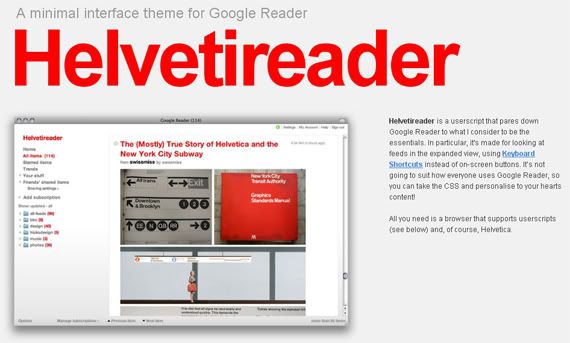
UPDATED: Talk about bad timing. Those nice folks at Google have just decided to update the Reader interface quite radically, so Helvetireader is no longer working as it should. The official recommendation is to disable the style until Hr is updated for the new Google Reader. Life’s too fast on the web I guess…
ENGLISH EDITION
The English-only edition of the blog A Barriga de um Arquitecto is no longer being updated. Please visit the main page to access new content, additional information and links.
ARCHIVES | ARQUIVO
September 2008 October 2008 November 2008 December 2008 January 2009 February 2009 March 2009 April 2009 May 2009 June 2009 July 2009 August 2009 September 2009 October 2009 November 2009 December 2009 January 2010 February 2010 March 2010 April 2010 May 2010 June 2010 July 2010 August 2010 November 2010 January 2011 February 2011 March 2011 June 2011 July 2011 October 2011 December 2011
